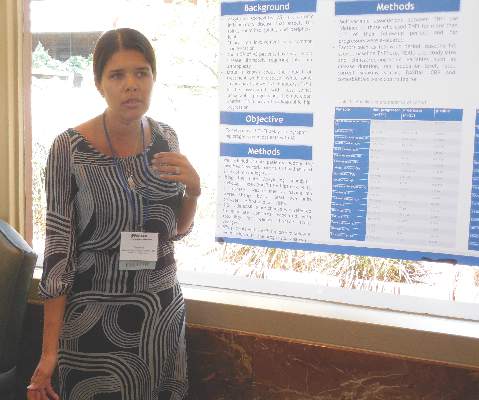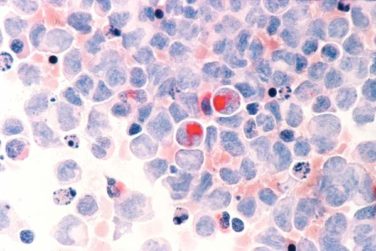AT THE 2016 SPARTAN ANNUAL MEETING
DENVER (FRONTLINE MEDICAL NEWS) – Treatment with a tumor necrosis factor inhibitor strongly linked with protection against progressive hip deterioration in observational data from 576 patients with ankylosing spondylitis enrolled in a prospective U.S. cohort.
But tumor necrosis factor (TNF) inhibitor treatment had less than full success for treating spondyloarthritis (SpA) disease activity in results from a separate registry study of 596 U.S. veterans diagnosed with SpA. About two-thirds were on a TNF inhibitor, and among these recipients, about 40% had suboptimal disease control, Delamo Bekele, MBBS, said at the annual meeting of the Spondyloarthritis (SpA) Research and Treatment Network. This substantial rate of SpA patients with high disease activity despite TNF inhibitor treatment “suggests a need for more aggressive treatment,” with either a higher TNF inhibitor dosage or by treatment with a different biological drug, said Dr. Bekele, a rheumatologist at Howard University Hospital in Washington.
The analysis that assessed the impact of TNF inhibitor treatment on hip status used data from 576 AS patients enrolled in the Prospective Study of Outcomes in AS ( PSOAS ) at any of five U.S. centers. PSOAS included patients diagnosed with AS for at least 20 years, and the new study focused on patients who had undergone hip imaging at least twice while in the study and who entered with a Bath AS Radiologic Index ( BASRI ) hip score of less than 4. The analysis considered patients to have experienced progressive hip deterioration if they had a follow-up BASRI score that was at least two points higher than their baseline score. During a median 3 years of follow-up, 25 patients had this level of hip-disease progression.
A multivariate analysis showed that the rate of hip disease progression was cut by 98% among patients on TNF inhibitor treatment, compared with those not on a TNF inhibitor, a highly significant difference between the two subgroups, reported Daphne Scaramangas-Plumley, MD, a rheumatologist at Cedars-Sinai Medical Center in Los Angeles. The only other variable identified that also correlated with the risk of hip progression was a patient’s hip score at baseline: For every additional point of the BASRI hip score the rate of later worsening rose by 60%.
The second study involved 596 U.S. veterans diagnosed with a type of SpA and enrolled in the Program to Understand the Longterm Outcomes in Spondyloarthritis ( PULSAR ) registry study at any of seven U.S. Department of Veterans Affairs centers. The analysis showed that about 64% of these SpA patients were receiving a TNF inhibitor. Among these patients on a TNF inhibitor, about 40% continued to have a Bath AS Disease Activity Index ( BASDAI ) score of 4 or higher, a level high enough to flag an inadequate response to current treatment.
Dr. Scaramangas-Plumley and Dr. Bekele had no disclosures.
On Twitter @mitchelzoler




